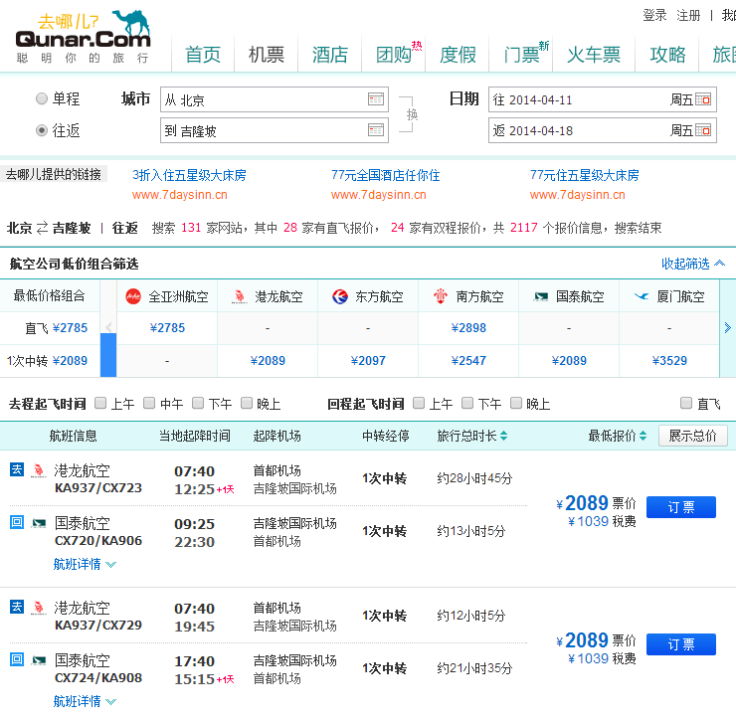Chinese Travel Booking Sites Adopt Malaysian Airlines Boycott

The backlash in China over missing commercial plane Flight 370 has led to a travel boycott to Malaysia. Spurred mostly by online conversation, the boycott has since snowballed to involve several local airline booking websites.
On popular microblog social media platform Weibo, the topic “Malaysia tourism” was trending for several days, with most users expressing disinterest in traveling to Malaysia following what they perceived as a mishandled response to the missing flight that was carrying mostly Chinese passengers. Many mainland Chinese, including several outspoken celebrities, have since called for an official travel boycott.
Several of China’s largest online ticketing and travel booking portals have joined the public outrage, announcing the refusal to issue tickets using Malaysia Airlines, and instead, allowing customers to book flights to the Southeast Asian nation through other Chinese airlines. Agencies like eLong, LY.com, Qunar and Mango, which are some of China’s most popular travel websites, say that their new Malaysia Airlines-free services will last indefinitely.

“We will continue the ban indefinitely until the Malaysian government and Malaysia Airlines release every piece of information they have in order to find out the truth about the missing flight as soon as possible,” eLong posted on its official Weibo account page. Two of the passengers on the missing Beijing-bound flight reportedly booked their flights through eLong. As a gesture of good faith, eLong said that it would also pay the families of both passengers 100,000 yuan “as a consolation.”
LY.com similarly posted a statement on its Weibo profile saying it was willing to offer full refunds to customers that wanted to cancel existing bookings using the airline, and would follow the ban until the Malaysian airline “sorts out the truth and offers a satisfactory explanation to all the victims and the Chinese people.”
The online response to the ticketing ban and refunds has been very positive among users, which can often be an appropriate gauge of a company, brand or person’s public perception. “This is the solidarity we need. They [Malaysian Airlines] need to be accountable to all of us,” one person said, reposting the statement by eLong.
“Even if you don’t go along with the travel ban, why give business to a company that is such a mess. Book trips on a different airline,” another blogger chimed in.
One company, Ctrip (NASDAQ: ADR), however, did not go along with the airline ban. As of Friday, the website continues to offer Malaysian Airlines flights as a booking option on flights between China and Malaysia. Ctrip is China’s leading travel website and said it would not be following the lead of competitors. The reason? “Objections raised by the sales department,” a Ctrip employee told the South China Morning Post anonymously. Ctrip is a NASDAQ-listed company that leads the market with nearly 50 percent of the total online travel-booking market.
© Copyright IBTimes 2024. All rights reserved.












